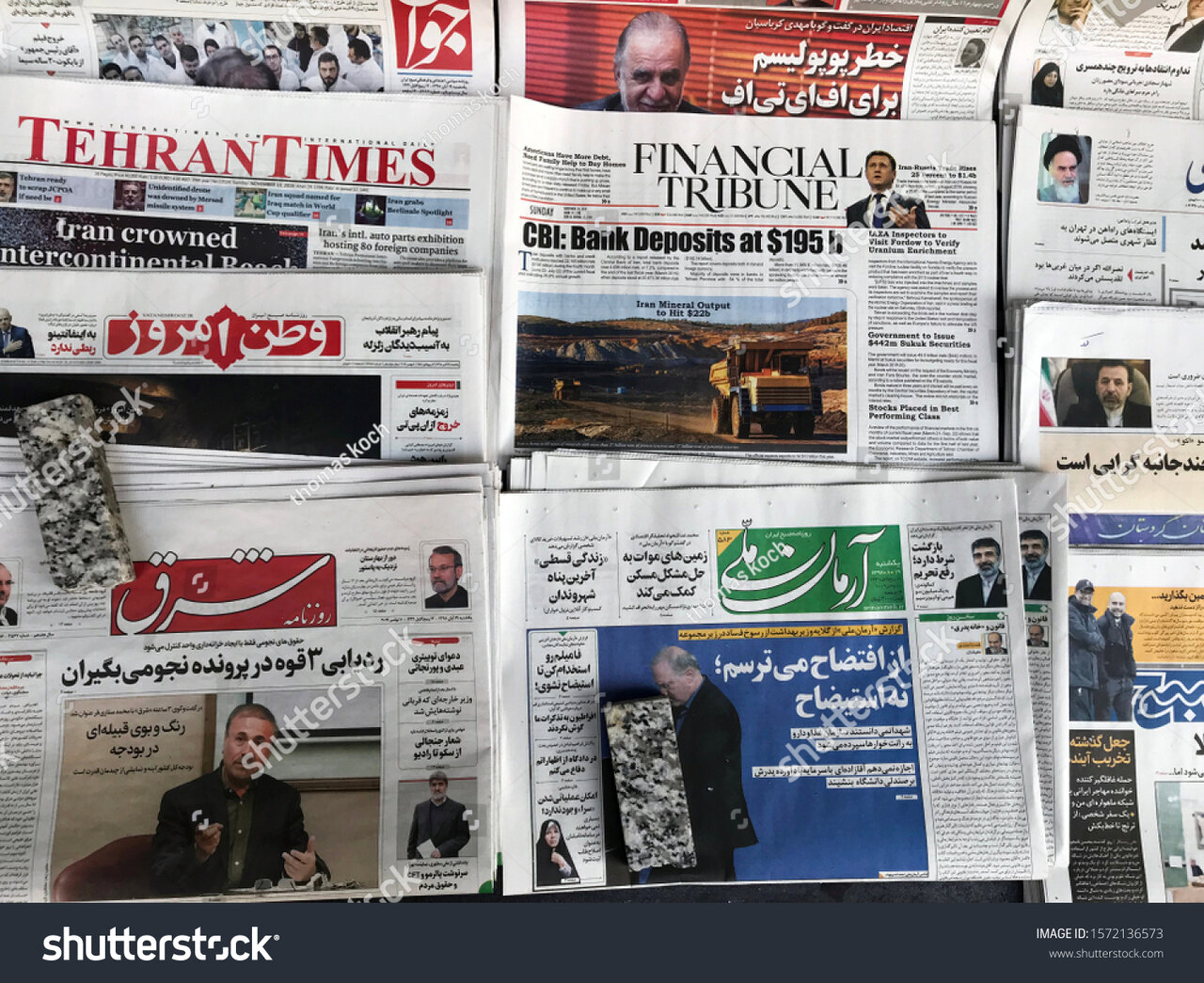The defeat of Israel’s goals in Syria

The Iran newspaper discussed the relationship between Raisi’s visit to Syria and the Zionist regime. It wrote: The Zionists committed a series of terrorist acts during most of the past two years in order to prevent Iran from having a special position in Syria in various political, security and military dimensions. These terrorist actions were used against Syria and sometimes against positions in Syria that belonged to Iran and Iran’s allies.
Their clear slogan was that Syria should be freed from Iranian military forces. Now Mr. Raisi’s trip conveys this meaning that not only the bombing raids and terrorist policies of the Israeli regime have not been accomplished, but the relations between Iran and Syria is being strengthened more and more. Therefore, this trip clearly means the hostile policies of the Zionist regime against Syria and Iran were ineffective.
Farahikhetgan: Syria’s stability in confronting Israel
Farhikhtegan addressed the president’s visit to Syria, and the important position of Damascus. It wrote: Iran supports the revival of Syria’s status in the Arab world because of the benefits this issue has for the resistance axis. Syria is a country that has been unwavering in supporting the Palestinian cause and opposing colonial plans. This steadfastness is unprecedented among Arab countries and governments. Egypt and Jordan sometimes took positions against the Zionist regime and participated in several wars, but in the end they retreated and normalized ties. Sometimes, Iraq and Saudi Arabia have also shown anti-Zionist efforts, but apart from the secret and historical help of the Saudis with the Zionists, Baghdad’s efforts have been mostly ineffective and intermittent. In the Arab world, Syria's anti-Zionist stances and actions are unparalleled. To revive Syria’s Arab status on the one hand means increasing the weight of the faction opposing the regime in the Arab world and on the other increasing the concentration of these oppositions.
Vatan-e-Emrooz: The exact time of Mr. Raisi’s visit
In its editorial, Vatan-e-Emrooz discussed Raisi’s visit to Damascus. It wrote: Israel’s projects in the region, such as the Abraham Accords and the normalization of Arab-Israeli relations, have reached a dead end. And we are seeing that this train has been stopped after the initial departure. This means that the region has entered a new stage and resistance has taken the center stage.
During this trip, there have been major developments in regional relations between Iran and Saudi Arabia, Iran and China and Russia, and between Saudi Arabia and China, and this trip means that we are generally seeing a series of developments in international relations in the region, and these developments can be understood and expanded with the centrality of Tehran.
Ham Mihan: The confused opposition
In an article, Ham Mihan discussed the reasons for the failure of the saboteurs’ coalition and the problems of the Mahsa charter. It wrote: Although the Mahsa charter refers to democratic governance, human rights, human dignity, peace and security in some parts, it lacks coherence and national attitude. In the whole text of the charter, the word “nation” was not used even once, and the phrase “people” was used instead. It seems unlikely that this was unintentional, and apparently it was aimed to gain the support and agreement of non-national movements like Abdollah Mohtadi. Mohtadi has a history of terrorism and separatism and does not believe in the “united nation of Iran” and presents Iran as a multinational, and Iranian ethnic groups as “nations”. This claim is better proven when we remember that in Azar 1398 (December 2018), Mrs. Ebadi, during an interview with Deutsche Welle on the sidelines of the meeting on “Future of Nations in Iran”, considered “the right of self-determination” synonymous with “the right to partition the country” and Mr. Mohtadi also accepted this point of view. In the text of the charter, the word “ethnic” is placed in front of the word “nations”, which clearly indicates the political presence of a special tendency in the coalition which does not show loyalty to the territorial integrity of Iran.
Hamshahri: Referendum and political stability
In an analysis, Hamshahri discussed the issue of referendum proposal. It wrote: That some people, with open or hidden motives, raise the issue of holding referendum is not something new. Sometimes it is raised by these people and groups and it fills the political atmosphere of the society for some time. Usually, countries with good political stability either do not hold referendums or the number of referendums they hold is maximally as much as the fingers of one hand. Therefore, we only see consecutive referendums are held in countries that suffer from political instability. Through referendums, they try to compensate the weaknesses they face in their political system.
Leave a Comment